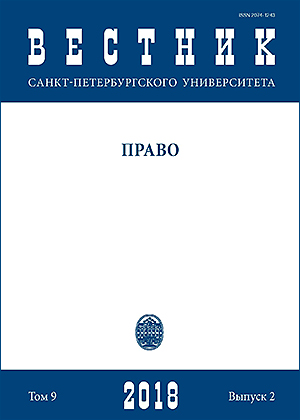Joint Development issues after the South China Sea arbitration: Dilemma, opportunity and China’s choice
DOI:
https://doi.org/10.21638/11701/spbu14.2018.210Аннотация
Since the late 1970s, the Chinese government has put forward a principle named ‘Set aside dispute and pursue joint development’. However, a joint development precedent does not exist that would assure the successful application of this principle between China and other countries with claims in South China Sea region. The possibility of joint development in the South China Sea faces the following major difficulties and challenges: a lack of political will, weak practical needs, island sovereignty disputes, ambiguities in various disputed maritime areas, and the interference of external forces. The award of the South China Sea arbitration case may exert a negative impact on joint development in this area. Though China and the Philippines are less likely to jointly develop the oil and gas resources in the South China Sea, with the improvement in Sino-Philippine relations and the further development of the relationship between China and ASEAN, as well as its member states, there is a strong possibility that the two countries will achieve cooperation and joint development in the fishery domain. Moreover, China is most likely to initiate the joint development with Indonesia, in the Natuna Islands sea area, the South China Sea.
Ключевые слова:
Sino-Philippine Arbitration Case, Joint Development, the South China Sea, United Nations Convention on the Law of the Sea
Скачивания
Библиографические ссылки
China_Sea_Under_Annexure_VII_of_UNCLOS.
Загрузки
Опубликован
Как цитировать
Выпуск
Раздел
Лицензия
Статьи журнала «Вестник Санкт-Петербургского университета. Право» находятся в открытом доступе и распространяются в соответствии с условиями Лицензионного Договора с Санкт-Петербургским государственным университетом, который бесплатно предоставляет авторам неограниченное распространение и самостоятельное архивирование.






